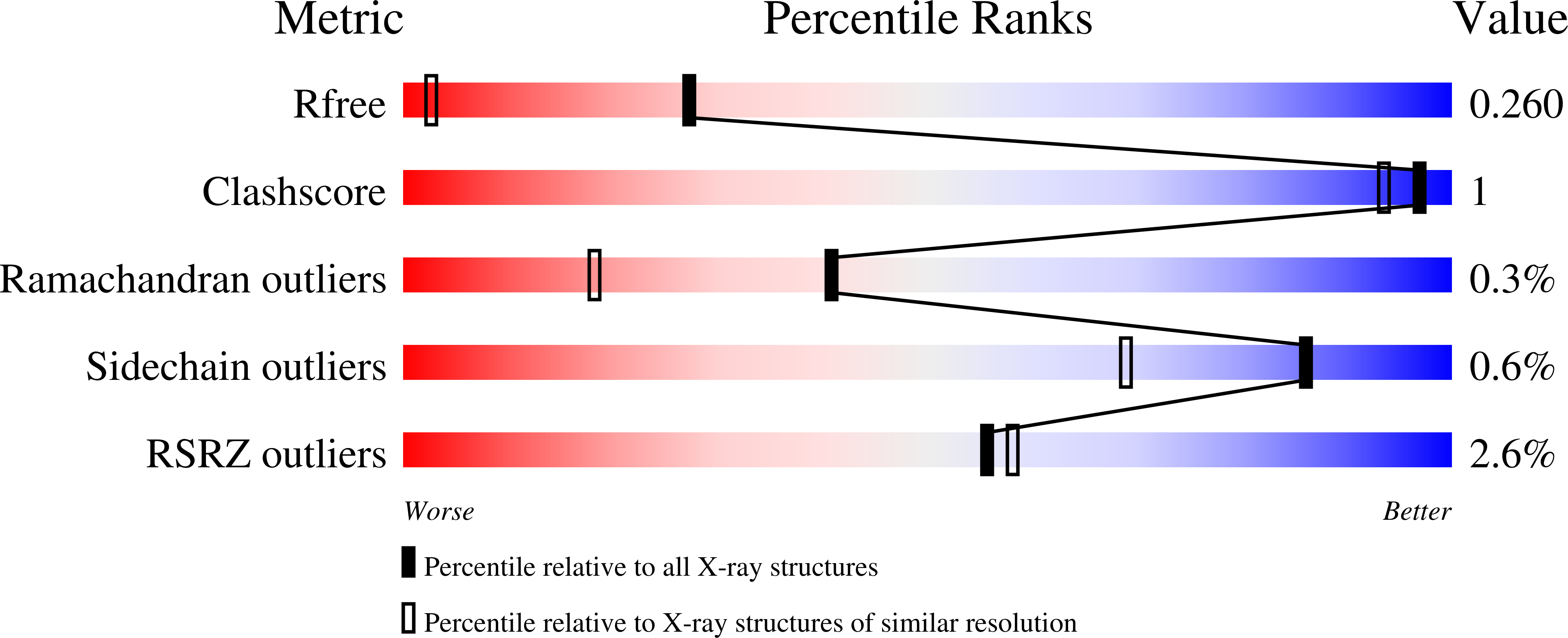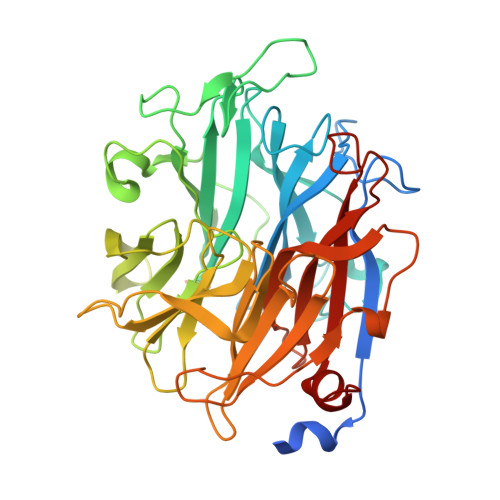Kinetic and Structural Characterization of Sialidases (Kdnases) from Ascomycete Fungal Pathogens.
Nejatie, A., Steves, E., Gauthier, N., Baker, J., Nesbitt, J., McMahon, S.A., Oehler, V., Thornton, N.J., Noyovitz, B., Khazaei, K., Byers, B.W., Zandberg, W.F., Gloster, T.M., Moore, M.M., Bennet, A.J.(2021) ACS Chem Biol 16: 2632-2640
- PubMed: 34724608
- DOI: https://doi.org/10.1021/acschembio.1c00666
- Primary Citation of Related Structures:
7P1B, 7P1D, 7P1E, 7P1F, 7P1O, 7P1Q, 7P1R, 7P1S, 7P1U, 7P1V - PubMed Abstract:
Sialidases catalyze the release of sialic acid from the terminus of glycan chains. We previously characterized the sialidase from the opportunistic fungal pathogen, Aspergillus fumigatus, and showed that it is a Kdnase. That is, this enzyme prefers 3-deoxy-d-glycero-d-galacto-non-2-ulosonates (Kdn glycosides) as the substrate compared to N -acetylneuraminides (Neu5Ac). Here, we report characterization and crystal structures of putative sialidases from two other ascomycete fungal pathogens, Aspergillus terreus ( At S) and Trichophyton rubrum ( Tr S). Unlike A. fumigatus Kdnase ( Af S), hydrolysis with the Neu5Ac substrates was negligible for Tr S and At S; thus, Tr S and At S are selective Kdnases. The second-order rate constant for hydrolysis of aryl Kdn glycosides by At S is similar to that by Af S but 30-fold higher by Tr S. The structures of these glycoside hydrolase family 33 (GH33) enzymes in complex with a range of ligands for both At S and Tr S show subtle changes in ring conformation that mimic the Michaelis complex, transition state, and covalent intermediate formed during catalysis. In addition, they can aid identification of important residues for distinguishing between Kdn and Neu5Ac substrates. When A. fumigatus , A. terreus, and T. rubrum were grown in chemically defined media, Kdn was detected in mycelial extracts, but Neu5Ac was only observed in A. terreus or T. rubrum extracts. The C8 monosaccharide 3-deoxy-d- manno -oct-2-ulosonic acid (Kdo) was also identified in A. fumigatus and T. rubrum samples. A fluorescent Kdn probe was synthesized and revealed the localization of Af S in vesicles at the cell surface.
Organizational Affiliation:
Department of Chemistry, Simon Fraser University, 8888 University Drive, Burnaby V5A 1S6, British Columbia, Canada.















